Ofe is the igbo word for Soup, it preludes most native soups that are specific to the ibo people of Eastern Nigeria. Onugbu is used to identify the bitterleaf plant (Vernonia amygdalina). Hence Ofe onugbu is bitterleaf soup. The soup like most soups from the region has a meat / fish broth base and requires thickening which is done by adding pounded cocoyam paste (ede). The peculiar taste of the soup comes from the leaves used and the presence of Ogiri (fermented pumpkin seed).
This is a simple recipe on how to prepare the soup. Please note that the choice and ratio of protein is based on personal preference.
Ingredient
- Precooked Assorted meat (Beef/goat chunks, shaki, snails etc)
- 2- 3 Stock fish and smoked fish (softened in hot water)
- ¼ cup ground crayfish
- Dried pepper – to taste
- ½ cup washed bitter leaves (fresh or dried)
- 6 small cocoyams (peeled and washed)
- ¼ – 1/2 cup palm oil
- 2-4 tablespoons ogiri
- Maggi and salt – to taste
Direction
- If using dried bitter leaves, soak it in some hot water to tenderize the leaves. Set aside
- Cover washed cocoyam with water and boil on medium heat until cooked through and fork tender. Remove from water and pound to a paste in a mortal or process in a blender or food processor. Set aside
- Combine meat, fish , snail and smoked fish in a pot. Add 2 cups of water. Set on medium heat. Add the maggi, salt , pepper and crayfish. Simmer for 15 minutes
- Add in the pounded cocoyam, ogiri and palm oil, stir well to combine and dissolve the cocoyam paste. Simmer for another 5 minutes
- Note: You can add in some more water at this point if you will like your soup to be lighter.
- Drain and add in the bitter leaves. Combine. Taste and adjust for seasoning. Simmer for another 5 minutes
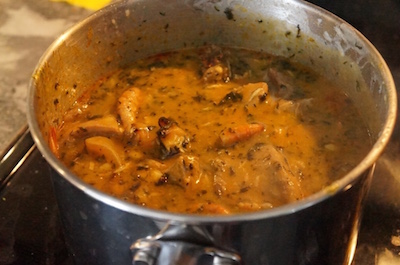
Enjoy!
Did you know: If you substitute the bitter leaves in this recipe with Ora leaves, you get “ora (oha) soup” and if you substitute in okazi leaves you have “ofe owerri” .
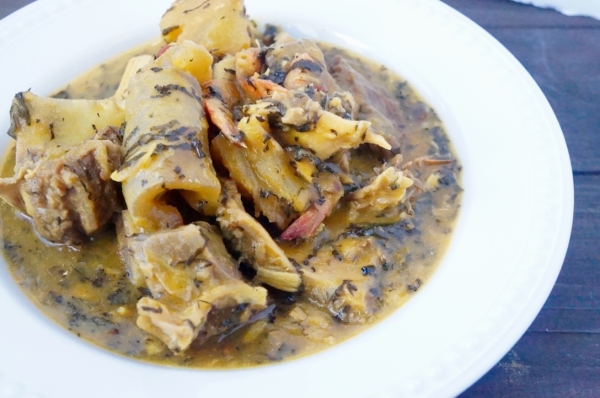
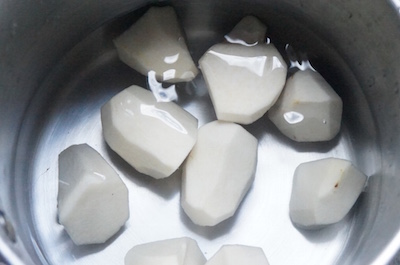
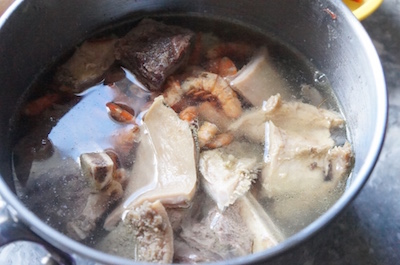
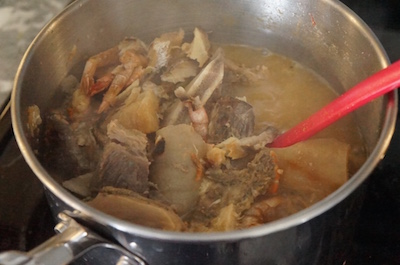
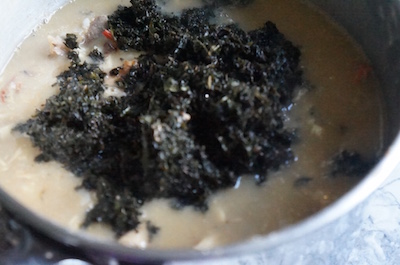

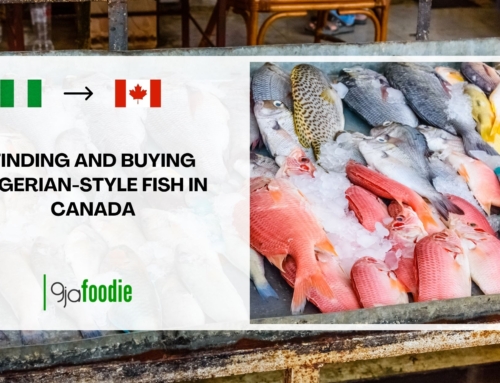
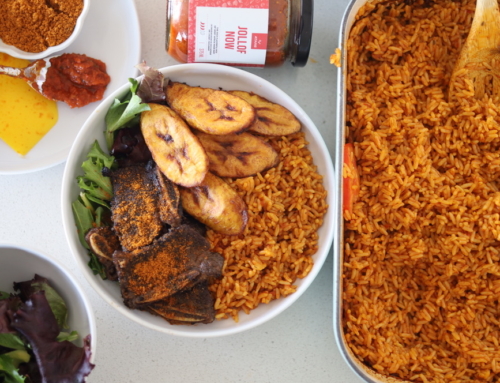

How can you cook it with out using ogiri?
Can I use yam in place of cocoyam
Can I use yam in place of cocoayam
Can you use yam in place of cocoa yam
pls can u eat it with amala
yes!
Thanks so much, I just finished buying some of the ingredients for one onugbu and been a Yoruba past decided to search through the internet for a the procedure. This blog came handy. Thanks so kuchen, you are doing a great job
I am yoruba so not familiar with the term ogiri. Can you elaborate on this? Can I substitute it with iru or dawandawa?
Hi,
I am from Idemili in Anambra state and this is our native soup. A couple of things I would like to point out.
We do not use maggi along with Ogiri; it spoils the taste of the soup
We do not peel the cocoyam before boiling, you will lose the taste
We extract oil from palm nuts to make the soup (optional but it improves the native taste of the soup)
We use dried fish and not smoked fish. (there is a difference)
I have seen some asking for Ofor or Achi; while these will somewhat thicken the soup, they will not give you the real taste of the soup. AChi draws a little bit and its a big no no for this soup.
Once again, Maggi is a big no-no, not even to boil the meat. Onions are also not allowed even for boiling meat. You boil the meat with salt and pepper, no onions, no maggi.
This will give you the right native taste and feel of the soup.
Thanks for your insight.
People prepare their meals in different ways, because you do yours in a certain way doesn’t make it the right way or only way. Their is no big no no in cooking jare
Go & open your own food blog
I use either achi or ofor to thicken and it turns out just as nice.
Good to know, thank you!
doesn’t give the right and original flavor of the soup.
Ndidi did you taste it?
I don’t know, but adding cocoyam to soup and then eating it with a solid sounds so jarring. Can you try a version with achi instead. I want to try the receipt but cocoyam used as a thickener and then I eat with poundo just sounds too much for this health nut. Btw good job on the site, and you are my namesake;). Ronke’s rock
Hi. I’m from Nnewi where we are known for Ofe Onugbu. The cocoyam we use is different from normal cocoyams. Ours is smallish in size, you can’t even peel the back off without boiling first because you practically may peel off the whole thing. When pounded, it draws and becomes very sticky. The cocoyam is essential because not only does it thicken the soup, it also adds its own unique flavor to the soup. Ofe Onugbu is not original without the cocoyam and ogiri. But if you prefer Offor, that’s OK. But it is not the authentic Anambra style where the soup originates from. 9ja foodie got it spot on. Well done!
Thanks for the addition!!!!
I can’t wait to use this recipe. I have never liked this soup but am willing to give it a try .
http://www.carolesrepublic.blogspot.com
do let us know how it turns out.